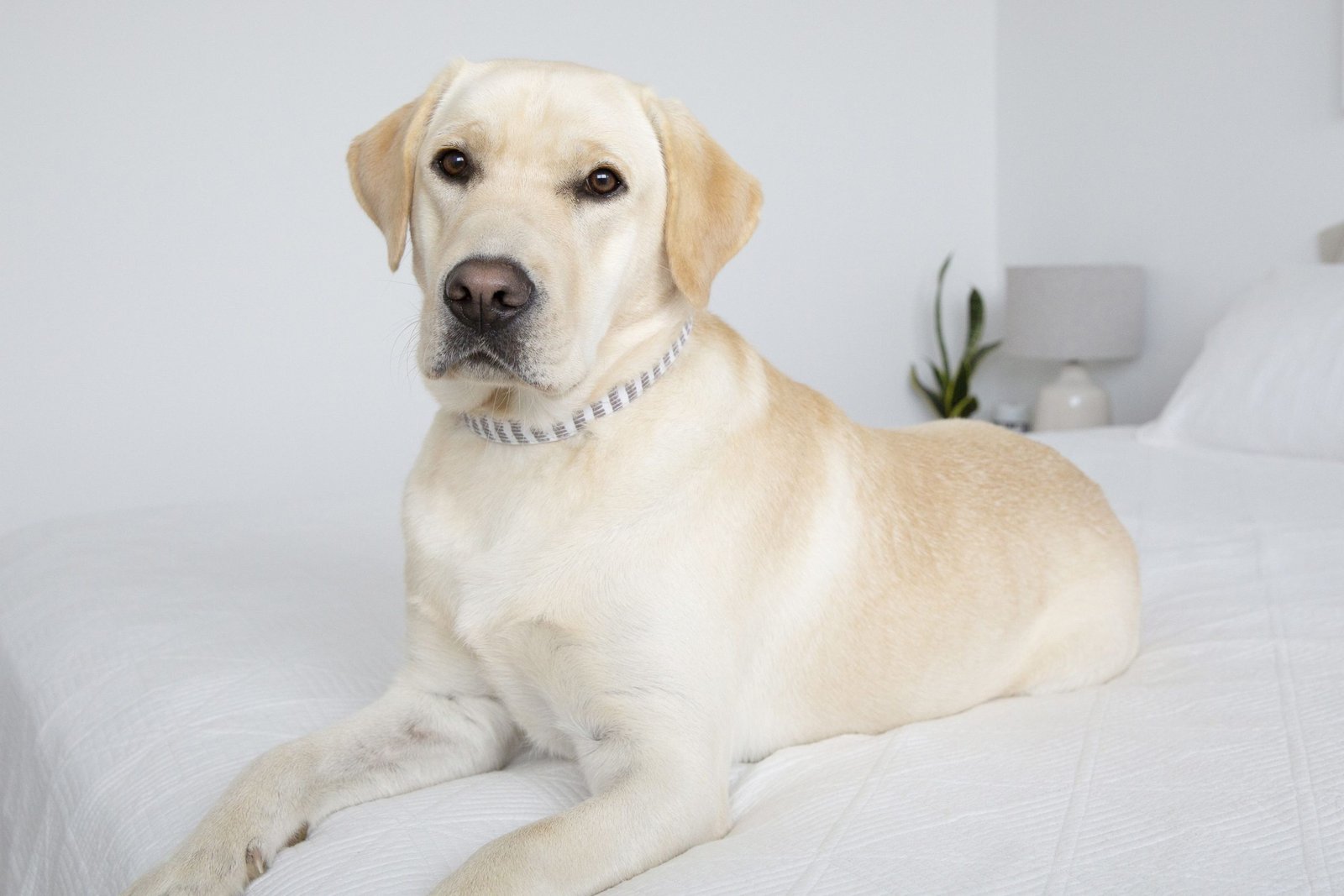The 10 worst dog breeds for people with allergies are Saint Bernards, Bulldogs, German Shepherds, Boston Terriers, Akitas, German Shepherds, Siberian Huskies, Alaskan Malamutes, Chow Chows, Great Pyrenees, and Labrador Retrievers. These breeds are known to produce excessive saliva, pet dander, and allergies and mucus, making them unsuitable for individuals with allergies.
Finding the perfect dog breed can be an exciting and fulfilling experience, but for individuals with allergies, it can be quite challenging. Allergies to pet dander can cause discomfort and even severe allergic reactions. While some dog breeds may be more hypoallergenic than others, there are still numerous breeds that can trigger allergic symptoms.
We will explore the ten worst dog breeds for people with allergies, highlighting the specific characteristics and traits that make them unsuitable for individuals with sensitivities. Whether you’re considering getting a dog or simply curious about the breeds to avoid, this information will be invaluable in helping you make an informed decision.
:strip_icc()/worst-dog-breeds-for-allergies-4845885-07-85829666784b4d9f8f3ede5a90d3863b.jpg)
Credit: www.thesprucepets.com
Understanding Dog Allergies
When it comes to finding the perfect furry companion, those of us with allergies have an added challenge. Dog allergies can cause discomfort and even serious health issues, making it important to choose a breed that is compatible with your sensitivities. Understanding the causes and symptoms of dog allergies is key to finding the right fit for your lifestyle.
Causes Of Dog Allergies
Dog allergies are primarily caused by proteins found in a dog’s skin cells, urine, and saliva.
Common causes of dog allergies include:
- Dander: Tiny skin flakes that are shed by dogs
- Saliva: Allergenic proteins present in a dog’s saliva
- Urine: Some individuals may be allergic to proteins in dog urine
When these allergens come into contact with a sensitive individual, it triggers an allergic reaction. It is important to note that certain dog breeds may produce more allergens than others, making them less suitable for people with allergies.
Symptoms Of Dog Allergies
Recognizing the symptoms of dog allergies is crucial in ensuring the well-being of both dog owners and their furry friends. Allergic reactions can vary from mild to severe and may include the following:
- Sneezing and coughing
- Itchy and watery eyes
- Runny or stuffy nose
- Skin rashes or hives
- Shortness of breath or wheezing
If you experience any of these symptoms when in contact with dogs, it’s important to consult with a healthcare professional for a proper diagnosis and treatment plan.
Now that we have a better understanding of dog allergies, let’s explore the 10 worst dog breeds for people with allergies in our next section.

Credit: www.everydayhealth.com
Best Dog Breeds For Allergy Sufferers
If you or a family member suffer from allergies, you may think owning a dog is out of the question. However, there are several breeds that are considered more hypoallergenic and are better suited for allergy sufferers. In this article, we will explore the best dog breeds for people with allergies, including hypoallergenic breeds and big dog breeds that are less likely to trigger allergies and asthma.
Hypoallergenic Dog Breeds
For individuals with allergies, hypoallergenic dog breeds can be a great choice. These breeds have hair, rather than fur, which significantly reduces the amount of allergens present. Here are some hypoallergenic dog breeds to consider:
- Labradoodle
- Poodle
- Bichon Frisé
- Portuguese Water Dog
- Maltese
These breeds are known for producing less dander and shedding less hair, making them a better fit for individuals with allergies. However, it’s important to note that no dog breed is completely hypoallergenic, and individual reactions may vary.
Best Big Dogs For Allergies And Asthma
Contrary to popular belief, not all big dog breeds are a nightmare for allergy sufferers. Some big dogs can be surprisingly suitable for those with allergies and asthma. Here are some big dog breeds that are less likely to trigger allergies:
- Labrador Retriever
- Irish Water Spaniel
- Afghan Hound
- Giant Schnauzer
- Lagotto Romagnolo
These big dog breeds have minimal shedding and produce less dander, making them a good choice for individuals with allergies. However, it’s important to spend time with the specific breed and check for any allergic reactions before committing to a dog.
If you’re an allergy sufferer, don’t give up on the idea of owning a dog just yet. By choosing the right breed and taking necessary precautions, you can find a furry companion that won’t trigger your allergies. Remember, always consult with a healthcare professional or allergist for personalized advice based on your specific allergies.
Worst Dog Breeds For Allergy Sufferers
Looking to adopt a dog but suffer from allergies? Beware of breeds like Saint Bernards and Bulldogs, known for excessive saliva, German Shepherds with dry skin causing pet dander, and Boston Terriers prone to allergies and mucus. These breeds may not be the best choice for allergy sufferers.
Introduction:If you suffer from allergies but love dogs, finding the right breed can be a challenging task. While there are some hypoallergenic dog breeds that are known to be more suitable for allergy sufferers, there are also breeds that can exacerbate your symptoms. In this blog post, we will explore the 10 worst dog breeds for people with allergies, focusing on breeds known for excessive saliva, breeds with dry skin and excessive pet dander, and breeds that suffer from allergies and mucus.
Breeds Known For Excessive Saliva
Saint BernardsBulldogs. These lovable, drooling dogs may not be the best choice for allergy sufferers, as their excessive saliva can be a trigger for allergies. If you are someone who is highly sensitive to allergens, it may be best to avoid these breeds to minimize any potential discomfort.
Breeds With Dry Skin And Excessive Pet Dander
If you’re someone who is allergic to pet dander, you should be cautious when considering breeds with dry skin. A German Shepherd, for instance, is a breed that is prone to dry skin, which can lead to excessive shedding of pet dander. This can be problematic for allergy sufferers, as pet dander is a common trigger for allergic reactions. If you have allergies, you may want to think twice before bringing a German Shepherd into your home.
Breeds That Suffer From Allergies And Mucus
Certain dog breeds are more prone to allergies and mucus production, which can be a nightmare for allergy sufferers. Boston Terriers are one such breed known for suffering from allergies and excessive mucus. Their respiratory issues can result in increased sneezing, coughing, and nasal congestion, all of which can be problematic for individuals with allergies. If you have allergies, it’s best to steer clear of breeds that are known to have these respiratory issues. In conclusion, if you suffer from allergies, it’s important to choose a dog breed that is compatible with your condition. Breeds known for excessive saliva, dry skin with excessive pet dander, and breeds that suffer from allergies and mucus should be avoided to minimize the risk of allergic reactions. Remember to consult with a healthcare professional or an allergist before bringing a dog into your home, and consider hypoallergenic breeds that are more suitable for allergy sufferers. By taking these precautions, you can find a furry companion that brings joy to your life without compromising your health.
Managing Dog Allergies
Living with dog allergies can be challenging, especially when you’re a dog lover. But with the right strategies and precautions, it is possible to manage your allergies and still enjoy the company of a furry friend. In this section, we will explore some tips for living with allergies and dogs, as well as effective allergen-control strategies.
Tips For Living With Allergies And Dogs
- Choose a hypoallergenic dog breed: Some dog breeds are known to produce fewer allergens and are considered more allergy-friendly. Consider breeds such as the Miniature Schnauzer, Peruvian Inca Orchid, and Poodle.
- Keep your dog out of the bedroom: Designate your bedroom as a dog-free zone to create a safe and allergen-free space where you can retreat for undisturbed sleep and allergy relief.
- Regular grooming: Frequent grooming, including brushing and bathing your dog, can help reduce the amount of allergens present in their fur and minimize the spread of allergens in your home.
- Invest in a high-quality air purifier: An air purifier with a HEPA filter can help remove pet dander and other allergens from the air, improving overall indoor air quality and reducing allergy symptoms.
- Wash bedding frequently: Regularly washing your dog’s bedding, as well as your own, can help remove allergens that may have accumulated and reduce your exposure to them.
Allergen-control Strategies
Implementing effective allergen-control strategies can greatly help in managing your dog allergies. Here are some strategies to consider:
- Keep your home clean: Vacuum and dust your home frequently to remove allergens that may have settled on surfaces.
- Use allergen-proof covers: Invest in allergen-proof covers for your mattresses, pillows, and furniture to create a barrier between you and potential allergens.
- Eliminate carpets and rugs: Carpets and rugs can harbor allergens, so consider replacing them with hard flooring options that are easier to clean, such as hardwood or tile.
- Regularly clean and vacuum your dog’s living area: Keep your dog’s living space clean by regularly washing their bedding and vacuuming any pet hair or dander that may have accumulated.
By implementing these tips and strategies, you can effectively manage your dog allergies and create a comfortable living environment for both you and your furry companion.

Credit: www.everydayhealth.com
Frequently Asked Questions On 10 Worst Dog Breeds For People With Allergies
What Breed Of Dogs Are The Worst For Allergies?
The worst dog breeds for allergies are Saint Bernards, Bulldogs, German Shepherds, and Boston Terriers. These breeds produce excessive saliva, have dry skin causing excessive dander, and suffer from allergies and mucus.
What Is The Best Dog To Avoid Allergies?
The best dog breeds to avoid allergies are: Portuguese Water Dog, Maltese dog, Labradoodle, Poodle, Bichon Frisé, and Chinese Crested Dog.
What Dog Causes Most Allergies?
The dog breed that causes the most allergies is subjective and varies from person to person. Some common breeds known to trigger allergies include Labrador Retrievers, German Shepherds, Boston Terriers, and Bulldogs. The severity of allergies can also differ among individuals.
What Is The 3 Month Allergy Shot For Dogs?
A 3 month allergy shot for dogs helps to treat allergies in dogs by providing long-lasting relief.
Conclusion
When it comes to choosing a dog breed for people with allergies, it’s important to avoid ones that are known for excessive saliva, dry skin, and allergies themselves. Saint Bernards, Bulldogs, German Shepherds, and Boston Terriers are among the worst breeds for allergies.
Instead, consider hypoallergenic breeds like the Miniature Schnauzer, Poodle, and Portuguese Water Dog to minimize allergic reactions. Remember to always consult with an allergist before bringing a dog into your home to ensure a healthy and allergy-friendly environment.

